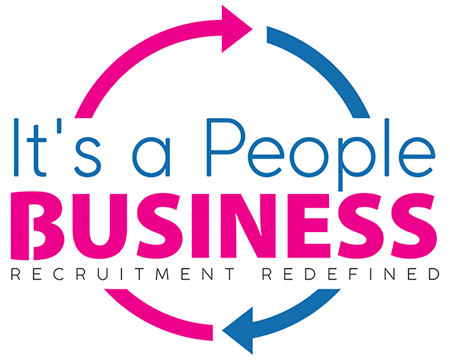
As organisations strive to create a more inclusive workplace, diversity, equity, and inclusion (DEI) have become essential components of recruitment strategies. A diverse workforce can bring new perspectives, innovative ideas, and increased creativity to an organisation. However, building a diverse team requires more than just posting job openings on a job board and hoping for a diverse pool of candidates to apply. Effective recruitment strategies must actively seek out diverse candidates and create an inclusive environment that supports their success.
Read More: Mastering Talent Acquisition: Strategies and Best Practices for Recruiting Top Candidates
This blog post will explore the importance of DEI in recruitment and provide practical strategies for organisations to implement. We will discuss the benefits of a diverse workforce, the challenges and biases that can impact the recruitment process, and the best practices for creating an inclusive recruitment strategy. Additionally, we will highlight the role of leadership in promoting DEI and cultivating a culture of inclusion within an organisation.
By prioritising DEI in recruitment, organisations can not only attract a diverse pool of candidates but also create a more inclusive and equitable workplace for all employees.
1. Diverse hiring leads to innovation.
1. Diverse hiring leads to innovation.

Diverse hiring leads to innovation, making it a crucial component of any successful recruitment strategy. Inclusive hiring practices are essential to ensuring that organisations thrive in today's increasingly diverse and globalised workforce. When companies prioritise diversity, equity, and inclusion, they open themselves up to a broader range of perspectives, experiences, and ideas.
Read More: The Future of Work: Predictions for Online Recruitment in the Next Decade
Stay competitive in the business landscape.
Stay competitive in the business landscape.
This diversity of thought and background can lead to increased creativity, problem-solving, and innovation within the workplace. Inclusive hiring practices also foster a more welcoming and supportive work environment, which can lead to increased employee engagement, retention, and job satisfaction. Overall, prioritising diversity, equity, and inclusion in recruitment is not only the right thing to do, but it is also the smart thing to do for any organisation looking to stay competitive in today's rapidly evolving business landscape.
2. Equity is essential for fairness.
2. Equity is essential for fairness.

Organizations that prioritize diversity, equity, and inclusion recognize the vital role of inclusive hiring practices in attracting and retaining a diverse workforce. To this end, the pursuit of equity is fundamental to the attainment of fairness. While diversity entails the representation of various groups, equity centers on the assurance of equal prospects for all. This necessitates the establishment of a level playing field through the eradication of obstacles and provision of support for underrepresented groups.
Equal opportunity for all.
Equal opportunity for all.
The implementation of inclusive hiring practices aimed at promoting equity within organizations can entail various techniques including blind resume screening, structured interviews, and the provision of reasonable accommodations for candidates with disabilities. These strategies, when adopted, can effectively foster a workplace culture that upholds the principles of inclusivity and creates equitable opportunities for all.
3. Inclusion fosters a welcoming culture.
3. Inclusion fosters a welcoming culture.

Inclusive hiring practices are essential for creating a welcoming culture in the workplace. Inclusion means including people of all backgrounds, identities, and experiences, providing equal opportunities for everyone, and creating a sense of belonging for all employees. When organisations prioritise inclusion in their recruitment process, they promote diversity and equity in the workplace, which can lead to increased creativity, innovation, and productivity.
Attract a wider pool of qualified candidates
Attract a wider pool of qualified candidates
Employing an inclusive approach in recruitment can involve the implementation of various measures, such as job advertisements that employ inclusive language, the formation of diverse interview panels, provision of unconscious bias training to hiring personnel, and the facilitation of accommodations for individuals with disabilities. By embracing these practices, organizations can broaden their talent pool by attracting qualified candidates from diverse backgrounds, thereby fostering an inclusive and diverse work environment.
4. Recruiting a variety of perspectives.
4. Recruiting a variety of perspectives.
Inclusive hiring practices are essential for any organisation looking to recruit a variety of perspectives. Recruiting a diverse workforce not only promotes equity and inclusion but also has been proven to improve business outcomes. To achieve this goal, organisations need to rethink their recruitment strategies and approaches to ensure that they are inclusive and welcoming to candidates from all backgrounds. This includes implementing blind resume reviews, considering a broader range of qualifications, and using diverse job boards to source candidates.
Inspire a more innovative and successful business.
Inspire a more innovative and successful business.
Furthermore, it is imperative for organizations to cultivate strong partnerships and engage with a broad range of communities and entities to establish a multifaceted pool of potential candidates. By making diversity and inclusivity a top priority in their recruitment practices, organizations can effectively cultivate and retain a diverse workforce that brings a wealth of distinctive viewpoints and experiences to the table. This will further enhance innovation and drive successful business outcomes.
Read More: Mastering the Main Stages of Any Recruitment Discussion: A Practical Guide for Employers
5. A diverse workforce benefits everyone.
5. A diverse workforce benefits everyone.

Inclusive hiring practices are essential for building a diverse workforce, which is beneficial for everyone involved. Research has shown that companies with diverse teams perform better and have a competitive advantage in the marketplace. A diverse workforce brings fresh perspectives, new ideas, and innovative solutions to problems. It also creates a more inclusive workplace culture, where all employees feel valued and respected for their unique contributions. In addition, having a diverse workforce helps companies better understand and connect with their customers, who come from a variety of backgrounds and cultures. Therefore, it is crucial for companies to implement inclusive hiring practices to attract and retain a diverse talent pool and promote a culture of diversity, equity, and inclusion.
Conclusion
Conclusion
Ultimately, the establishment of a recruitment process that is diverse, equitable, and inclusive is not just an ethical imperative but a smart business decision. This approach ensures access to a wider pool of capable candidates, cultivates a more productive and innovative work environment, and enables organizations to better comprehend and cater to their diverse clientele. By emphasizing DEI principles in recruitment, corporations can construct more resilient teams and elevate their overall performance. It is high time to act and accord top priority to DEI across all dimensions of the recruitment process.
Read More: The Benefits of Working with a Flat Fee Recruiter
Reach out to It's a People.Business for expert guidance and support in implementing these best practices. Our team of recruitment professionals can help you develop a cost-effective and efficient hiring strategy that aligns with your business goals. Contact us today to learn more and take the first step towards building a strong and talented team for your small business.
